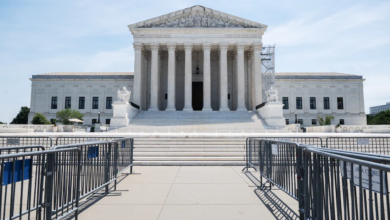5 BEST ESTATE PLANNING IN TIMES OF UNCERTAINTY IN THE USA

ESTATE PLANNING, In times of uncertainty, it becomes crucial to plan for the future and protect the interests of your loved ones. Estate planning is a comprehensive approach that allows individuals to manage and distribute their assets according to their wishes. However, in the face of uncertainty, it is essential to adapt and incorporate specific strategies to ensure the efficacy of your estate plan. This article explores the five best estate planning practices that can help you navigate through uncertain times in the USA.
Estate planning is the process of creating a plan to manage and distribute your assets upon your death or incapacitation. It involves making important decisions regarding your property, finances, healthcare, and the guardianship of minor children. Estate planning not only provides peace of mind but also ensures that your loved ones are taken care of and your assets are distributed according to your wishes.
In times of uncertainty, such as economic volatility, changes in tax laws, or unprecedented events, estate planning takes on even greater significance. The uncertainty surrounding these situations can affect the value of assets, tax obligations, and even the stability of financial markets. Therefore, it becomes imperative to consider specific strategies to safeguard your estate plan and make it adaptable to changing circumstances.
Read More: MOST PROFITABLE TYPES OF REAL ESTATE INVESTMENT FOR 2023
Contents
Understanding the Current Uncertain Scenario
Before delving into the best practices for estate planning during times of uncertainty, it is crucial to understand the factors contributing to the current uncertain scenario in the USA. Factors such as political instability, economic fluctuations, global pandemics, and changes in legislation can all create an atmosphere of uncertainty.
These uncertain times can have a significant impact on estate planning. For example, economic downturns may affect the value of assets, making it essential to reassess their worth. Changes in tax laws can influence estate tax thresholds and rates, requiring individuals to review their plans to minimize tax liabilities. Moreover, unforeseen events like natural disasters or health crises can disrupt the smooth execution of an estate plan. Therefore, it is essential to adopt best practices that account for these uncertainties.

Best Practices for Estate Planning in Times of Uncertainty
Review and Update Your Estate Plan Regularly
In times of uncertainty, it is crucial to review and update your estate plan regularly. Life events, such as the birth of a child, marriage, divorce, or the death of a beneficiary, can significantly impact the effectiveness of your plan. By regularly reviewing your estate plan, you can ensure that it remains up to date and reflects your current wishes.
During these reviews, assess whether any changes are needed in the distribution of assets, appointment of guardians, or beneficiaries. Additionally, evaluate whether the designated executor, trustee, or power of attorney agents are still suitable for fulfilling their roles. Regular reviews provide an opportunity to make necessary adjustments and maintain the relevancy of your estate plan.
Establish a Trust
One of the best strategies for estate planning in times of uncertainty is to establish a trust. A trust offers numerous benefits, including asset protection, privacy, and avoiding probate. With a trust, you can transfer your assets to a separate legal entity that holds and manages them according to your instructions.
During uncertain times, a trust can provide added protection for your assets. By placing assets in a trust, you can shield them from potential creditors or legal disputes. Moreover, a trust allows for greater flexibility in controlling the distribution of assets, making it easier to adapt your plan to changing circumstances.
When establishing a trust, consider the different types available, such as revocable trusts and irrevocable trusts. Each type has its own advantages and considerations, so consult with an experienced estate planning attorney to determine the most suitable trust structure for your needs.
Ensure Proper Asset Protection
In uncertain times, ensuring proper asset protection becomes crucial. Unforeseen events such as lawsuits, bankruptcies, or economic downturns can put your assets at risk. Therefore, it is important to utilize legal tools and strategies to safeguard your assets from potential threats.
Asset protection may involve structuring your assets in a way that shields them from creditors, utilizing insurance policies, or creating entities such as limited liability companies (LLCs) or family limited partnerships (FLPs). By employing these asset protection strategies, you can help preserve your wealth and maintain the integrity of your estate plan.

Plan for Potential Tax Changes
Tax laws are subject to change, particularly during times of uncertainty. It is essential to stay informed about potential revisions that may affect your estate plan. In times of economic or political uncertainty, governments may implement new tax laws or modify existing ones to address fiscal challenges.
To ensure that your estate plan remains optimized from a tax perspective, consider consulting with a tax professional. They can help you navigate potential tax law changes and develop strategies to minimize tax liabilities. By staying proactive and adaptable, you can make informed decisions regarding wealth preservation and asset distribution.
Seek Professional Guidance
Estate planning can be complex, especially during uncertain times. To navigate the intricacies of estate planning effectively, it is highly recommended to seek professional guidance. Collaborating with an experienced estate planning attorney can provide invaluable insights and ensure that your plan is legally sound.
Additionally, consider working with financial advisors and tax professionals who specialize in estate planning. Their expertise can help you make informed decisions regarding investments, tax implications, and strategies for preserving and growing your assets.
By seeking professional guidance, you can benefit from their knowledge and experience, ensuring that your estate plan is comprehensive, adaptable, and optimized for uncertain times.
Conclusion
In times of uncertainty, estate planning becomes even more crucial to protect your loved ones and your assets. By implementing the best practices discussed in this article, you can ensure that your estate plan remains effective and adaptable in the face of uncertainty.
Regularly reviewing and updating your estate plan, establishing a trust, ensuring proper asset protection, planning for potential tax changes, and seeking professional guidance are all essential steps towards effective estate planning in uncertain times. Remember, the key is to remain proactive, adaptable, and well-informed, so you can navigate any challenges that may arise.

FAQs
- What is the difference between a will and a trust?
A will is a legal document that outlines your wishes regarding the distribution of your assets after your death. A trust, on the other hand, is a legal entity that holds and manages your assets according to your instructions. While both can be part of an estate plan, a trust offers additional benefits such as privacy, avoiding probate, and greater flexibility in asset management.
- How often should I update my estate plan?
It is recommended to review your estate plan at least every three to five years, or whenever significant life events occur. Examples of such events include marriage, divorce, the birth of a child, or the death of a beneficiary. Regular updates ensure that your estate plan remains current and reflects your current wishes.
- Can I create an estate plan on my own, without professional help?
While it is possible to create a basic estate plan on your own, it is highly recommended to seek professional help. Estate planning involves complex legal and financial considerations, and DIY approaches may result in errors or oversights that can lead to unintended consequences. An experienced estate planning attorney can provide guidance tailored to your specific needs and ensure that your plan is legally valid and effective.
- What happens if I don’t have an estate plan?
If you pass away without an estate plan, your assets will be distributed according to state laws of intestacy. This means that the court will determine how your assets are divided among your heirs based on predefined rules, which may not align with your wishes. Additionally, the lack of an estate plan can lead to prolonged legal proceedings, disputes among family members, and increased costs.
- Is estate planning only for the wealthy?
No, estate planning is not just for the wealthy. Regardless of the size of your estate, having an estate plan allows you to protect your assets, provide for your loved ones, and ensure that your wishes are carried out. Estate planning is a comprehensive approach that benefits individuals from all walks of life, regardless of their wealth or financial status.





